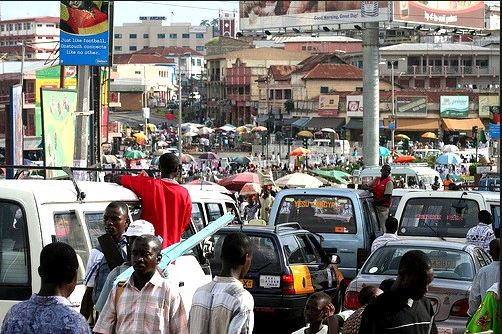I am a frequent visitor of the Ghana Statistical Services Publications website. It would serve all the talking heads as well as rural MPs in Ghana very well to visit this website and read some of their publications so that they can forcefully fight for their forgotten rural folks. One report that has caught my attention is The Integrated Business Establishment Survey Phase II Summary Report - released in September 2017. This report vividly paints a picture of a country where over 65 percent of all Businesses are located on a 30 mile radius piece of real estate called Accra. This lopsided econ development model started in the early 1980s, intensified in the 1990s and is in full bloom in the 2000s. Ghana is currently operating a highly centralized business establishment and economic development model that favors Accra to the detriment of the rest of the country. Yes, Accra may have certain natural advantages but isn't it the duty of Government and policy makers to use policy tools to fix such problems in the country. The recent reduction in electricity rates could have been an excellent policy tool to disrupt this highly centralized system and force some business to relocate to other parts of the country. For instance, the government could have used electricity rate/price discrimination as a tool to re-calibrate the system of establishing businesses.
Our first President made sure that the newly established state owned enterprises and private sector businesses were as fairly decentralized as possible. Therefore, a kokoase place like Kade got a match factory another kokoase place like Aboso got a glass factory kokoase and corn growers place like Ejura got a jute factory cattle and goat herders place like Bolga got a meat processing plant to make our favorite corned beef. The shift away from this model in the early 1980s has created an economic apartheid in Ghana and it is scary. Here are some of the highlights in the IBES Phase II Survey Report that must ring alarm bells to all lovers of Ghanas economic development
On Revenues generated by Businesses
1. By revenue generation, the Services sector generates about 69 percent of all business revenues in Ghana, manufacturing generates 29% and agriculture in a pathetic distant with 1.2 percent revenues generated of all business revenues. You get the picture? See page 12 of the report.
2. Businesses generated a total of GHC457 billion and of this total, about GHC318 billion was generated by the services sector. See page 13 of the report
3. Of the GHC457 billion, a whopping GHC311.9 billion (68.3 percent) was generated in THE GREATER ACCRA REGION ALONE. Ashanti Region is in a DISTANT second (if we can even call it second) and the Western Region is in an infinitesmal 3rd place. THE REMAINING 7 REGIONS DON'T COUNT. THIS IS THE ECONOMIC APARTHEID I AM TALKING ABOUT. See page 14
On Total Fixed Assets owned by Businesses
1. All business fixed assets in the country amounted to about GHC180 billion. Of this total, industry/manufacturing owned about GHC124 billion (68 percent).
2. Of the GHC180 fixed assets owned by businesses, about GHC120 billion (67 percent) are located in the Greater Accra Region. Again, look at the economic apartheid in the country. See page 33 of the report.
3. Page 29 of the report highlights a scary situation. Of the GHC 32.9 billion fixed assets purchases or additions to fixed assets by businesses, GHC25 billion (77 percent) WERE INSTALLED IN THE GREATER ACCRA REGION. Remember that additions to fixed assets by businesses can be used as a proxy for business expansions in the economy. We can safely say that almost all business expansions occur in Accra. Refer to Table 3.21 at page 29 of the report.
Time will not permit me to continue to highlight the business and economic imbalance that the 2017 IBES Survey Report on Ghana highlights. There is also a Housing Report out there published by the Statistical Service which paints a similar picture of what the IBES is highlighting. Now you know why Accra is congested, probably over populated and dirty. The population is drifting to Accra with the view to partaking in the wealth that is totally concentrated in Accra. Do we have to bring back Kutus Regional Development Corps, the so called REGDECS I am a Kutuist but I am NOT a fan of the REGDECs -a bureaucracy that will only consume resources with little to show for. The best option is to use policy measures such as practicing electricity tariff distribution to force businesses to relocate to other parts of the country, targeted tax breaks including reduced import taxes for businesses outside of Accra, establishing REAL MODERN vocation and skills development training centers in rural Ghana etc.


